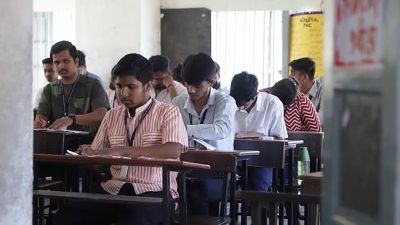Unite, in humanity
Why is the rest of India not concerned about Kashmir8217;s victims of sex abuse?

Over the past two weeks as a case of sexual abuse of Kashmiri girls has stirred sustained protest, I, like everyone else in Kashmir, have been deeply disturbed about the sordid state of affairs highlighted by the entire episode. But at the same time I also feel reassured when people come out on the streets in large numbers to protest the abuse. It has after all been a long time since Kashmiris protested so vehemently against an undesirable development. There was a catharsis, an outburst of pent-up anger against a system that is generally seen to be fighting against the entire society in the name of fighting against militancy. It is confirmation that Kashmir is still alive.
But what is it about this scandal that has so agitated the masses and sizzled the streets of Kashmir? As a woman I think there can be no greater disaster for a woman than to lose her chastity through coercion. Her entire being is disintegrated and depersonalised. But the way the scandal is being now projected, there seems to be a concerted covert effort to shift the debate away from the real issue. The issue here is not about the morality or waywardness of the girls. For that matter, it is not even about a particular sex racket.
This sex abuse scandal is about the involvement and connivance of the entire state apparatus, the coercion, the use of drugs to push teenage girls into prostitution, to turn them into comfort women of politicians and police and security agency officers by lure and blackmail. The details that have so far come to light, both in the media and outside it, point unequivocally towards a policy-based state patronage. This is deeply disturbing. More so, in a distressed setting called Kashmir, whose lanes and by-lanes have been witness to the bloody cycle of an unremitting conflict over the past sixteen years.
In Kashmir, India is fighting not only a war with separatist militants but also a battle to win the hearts and minds of the people. How do you help this situation when you undermine the very confidence of the people in the state apparatus? When the state itself, which is otherwise expected to dispense justice, is seen to be poaching upon a woman8217;s basic right to honour and dignity. It is here that the real problem lies. And here is an explanation of the intense public outrage that has so roiled the socio-political landscape of the Valley over the past two weeks.
This casts a huge responsibility on the central as well as state governments. Given the magnitude of public anger, the scandal has become a test case for the credibility of the system presiding over Kashmir. A transparent probe may be necessary not only to weed out the black sheep in the establishment but also to re-establish the people8217;s shaken confidence in the system.
But the way the case has so far played out on the ground and the way it has been responded to at the official level leave a lot to be desired. Far from a demonstrative effort to proceed against the guilty, the state seems to be putting down the entire scandal to the 8220;immorality and waywardness8221; of the society. This amounts to nothing less than blaming the victim for the crime perpetrated against her. And ironically, in this campaign even some separatist parties are playing along with the government. One women8217;s group has taken out raucous protests in the streets of Srinagar, seeking to identify the scandal as part of the moral degradation of Kashmiri society. This gives a bad name to the women of Kashmir, where sex rackets have otherwise traditionally been a rare occurrence. This also absolves the state apparatus that has blatantly misused power.
But while the state apparatus deserves to be criticised for misrepresenting the entire episode and its 8216;out of context8217; interpretation, there is a lot to be said about the larger Indian civil society as well. Where are the women8217;s groups, women8217;s commissions, the NGOs across India which champion the cause of women8217;s rights? If Jessica Lal8217;s murder and its subsequent trial becomes a national issue 8212; and duly so 8212; why doesn8217;t an organised, officially sanctioned abuse of Kashmiri girls elicit a single statement from anywhere across India? The argument that Kashmir is an integral part of India cannot be used only for political convenience. There is a need to relate to the people of Kashmir and their tragedies too.
Kashmir may be the most politicised state but the tragedies as they are experienced at the people8217;s level are not political. There are already some weird attempts by the state government to brand the entire public response to the scandal as a disguised expression of fanatic religious zeal. There are attempts to blame the girls in the racket as responsible for what happened to them. There are also attempts to dub the scandal as the handiwork of 8220;anti-national agencies8221; to discredit the police and the state government.
This is nothing but the prostitution of the entire issue. And this would do no good to the public confidence in the system, which should be paramount, both for the state and the central government. In the present scheme of things, it would be in the best interest of the government as well as separatists to keep the larger politics of Kashmir out of the scandal. Let us, for once, throw the space open to the people. And let us, for once, answer directly to them, rather than find excuses in the polarised politics of Kashmir.
The writer teaches English literature at Kashmir University and is a women8217;s rights activisthameedah_kuyahoo.co.in
- 01
- 02
- 03
- 04
- 05































